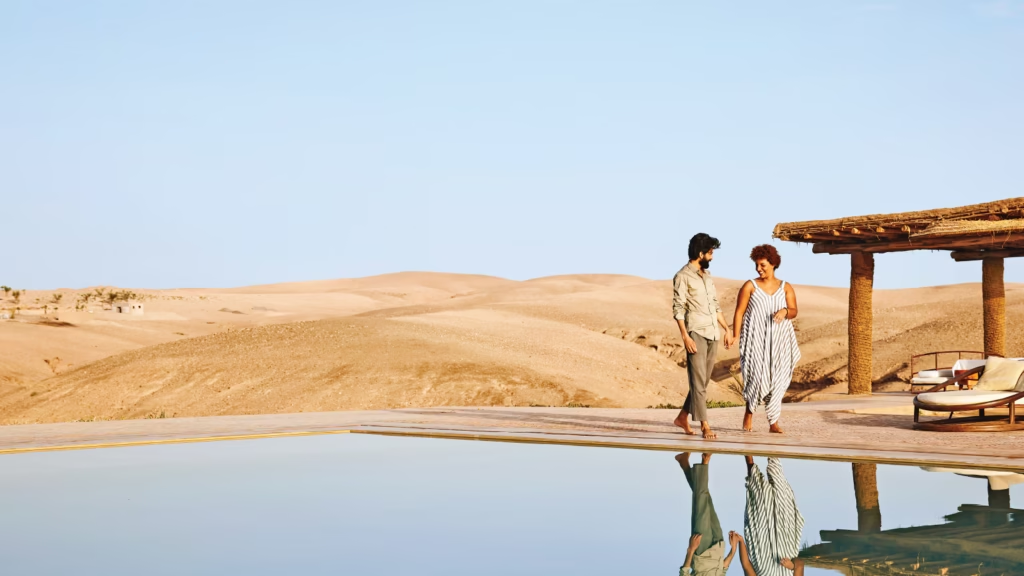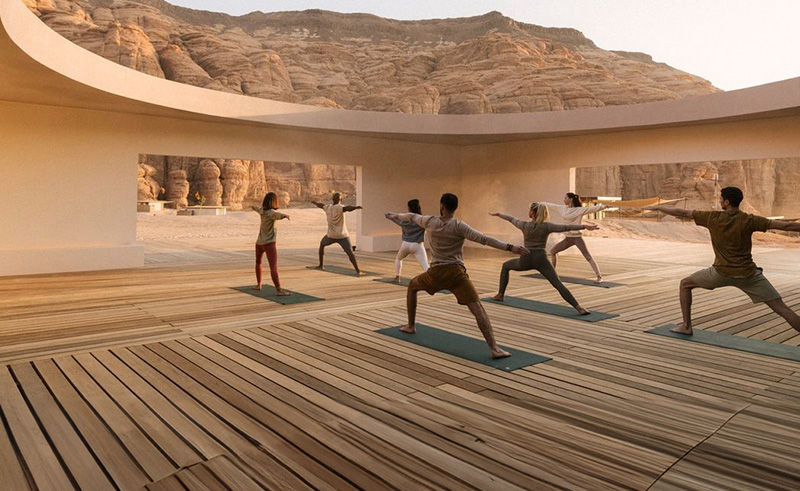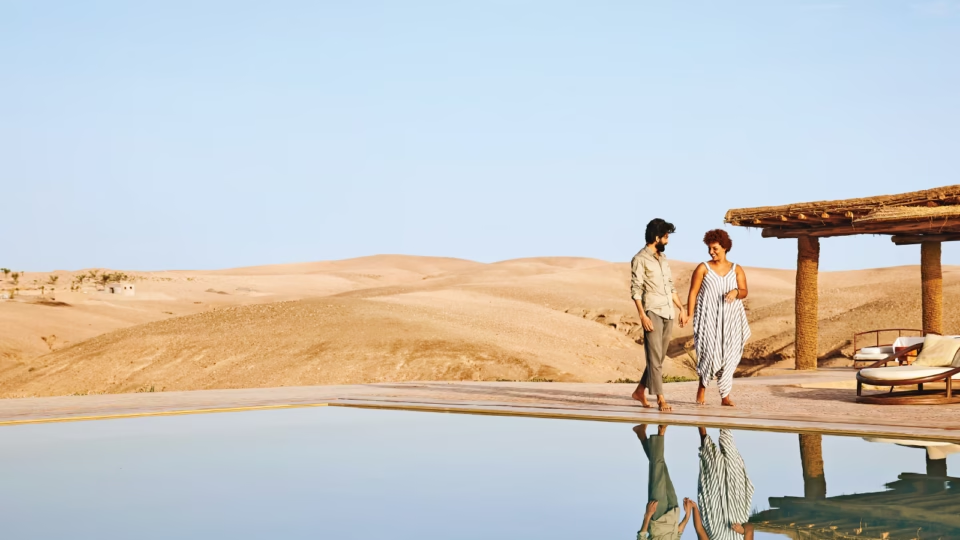A new joint report by PwC Middle East and data intelligence firm Mabrian Technologies, titled Stay Play Shop: Shaping Integrated Destinations for Connected Visitor Experiences, is calling on Gulf destinations to fundamentally rethink how they attract, engage, and retain modern travellers.

The message is clear – the region can no longer rely solely on luxury retail, grand architecture, and climate-defying mega-projects to remain competitive. Today and moving forward, destinations must become ecosystems designed to evoke emotion, tell local stories, and foster long-term loyalty.
The study is based on analysis of over 30 million traveller mentions and tourism performance indicators across Qatar, the UAE, and Saudi Arabia. It reveals a decisive shift in traveller priorities—visitors are no longer satisfied with convenience and spectacle alone. Culture, connection, and authenticity now drive choice. In Qatar, 28.5% of visitors are drawn by cultural experiences, a trend mirrored by the UAE (26.6%) and Saudi Arabia (24.5%). This therefore represents an important opportunity for providers willing to move beyond traditional, asset-led development.
A shift from assets to ecosystems
PwC’s Stay Play Shop framework is more than a marketing concept. It is a strategic blueprint for rethinking the entire value chain of a destination. And we are already seeing this shift…
- “Stay” represents more than accommodation. It reflects the need for lodging that fosters a sense of belonging, place, and purpose.
- “Play” demands the design of immersive cultural, wellness, or recreational experiences that spark emotional engagement.
- “Shop” challenges the dominance of generic luxury retail and repositions commerce as an expression of local identity, craftsmanship, and memory.
For B2B players, whether in hospitality, destination marketing strategy, retail partnerships, or transport, this shows a shift in how success is being measured. Relying on only footfall is no longer enough. Stakeholder value will increasingly hinge on how effectively destinations extend visitor dwell time, enable cross-sector collaboration, and capture sentiment-based insights. The old model of compartmentalised, high-transaction zones must now give way to more interconnected and visitor-led experiences that feel curated, not constructed.
Destinations like Diriyah, Msheireb Downtown Doha, and Downtown Dubai have already begun to prototype this approach, combining heritage, public spaces, and lifestyle experiences in ways that transcend functional zoning. These projects demonstrate what’s possible, but they remain exceptions. The real challenge for the industry lies in scale, consistency, and integration.
“This thought leadership reframes how we think about destination value by integrating visitor behaviour with the
realities of destination planning and placemaking. ‘Stay, Play, Shop’ is more than a slogan. It is a robust framework backed by visitor insights and evolving needs, offering development companies a strategic framework to drive visitation, spending and loyalty.” – Nicolas Mayer, Destinations Consulting Lead Partner at PwC Middle East
Evolving visitor profiles and new accommodation models
For B2B operators, understanding the changing profiles of inbound travellers is critical to both product development and partnership strategies. The report identifies four growing segments: Culture Seekers, Wellness-Minded Weekenders, Blended-Purpose Voyagers (often business-leisure hybrids), and Regional Family Explorers. Each has distinct preferences, yet all demand more than just a hotel room or guided tour. They want meaningful, adaptable, and localised experiences.

Accommodation trends are already shifting in response. In Saudi Arabia, demand for short-term rentals and alternative lodging has surged, with family bookings increasing by 90% and group stays by 60%. In Qatar, hotel-apartment occupancy rates are nearing 75%, reflecting demand for longer, more flexible stays that better support multi-generational travel and blended-purpose visits. The reality is, traditional hotels will need to adapt their service design and guest experience models or risk losing relevance.
“Our region is witnessing pivotal changes where developments evolve from places of transit to destinations where visitors feel genuinely inspired and create lasting memories. By embracing the ‘Stay, Play, Shop’ model, leaders can shape not just where people go, but how deeply they connect and experience places. This goes beyond destination development; it is about crafting generational legacies that fuel cultural pride, visitor loyalty and sustained economic return.” – Philippe Najjar, Destinations Consulting Partner at PwC Middle East
Collaboration, data, and purpose-led strategy are crucial
Perhaps the most pressing message for B2B tourism stakeholders is the call for alignment across sectors. PwC stresses that delivering integrated visitor experiences will require much closer collaboration between government authorities, tourism boards, private operators, cultural institutions, and retail developers. It’s clear that siloed planning models will not survive in a landscape where the traveller journey is non-linear and increasingly emotionally driven.
Equally important is the use of real-time data to monitor visitor sentiment and satisfaction across the full journey, not just within individual touchpoints. This will become a key differentiator for destination marketers and strategic planners. The report positions destination value not in terms of volume, but in resonance:
- Are we creating moments that matter?
- Are visitors returning?
- Are they sharing their experiences, and advocating?
“Public-private partnerships among Destination Management Offices, hoteliers, Destination Management Companies, retailers and operators will be a key enabler of the ‘Stay, Play, Shop’ model. Equally important is the
ability to gauge sentiment and satisfaction across this journey to measure success. This region stands to gain exponentially from enhancements in these metrics, making the value delivered even more impactful.” – Sonia Huerta, VP Advisory at Mabrian Technologies
So what’s the key take-away here? In short it is to embed culture, empathy, and legacy thinking into every project. The GCC’s tourism ambition remains unmatched, and to continue to stay ahead and lead, it must also be felt.



